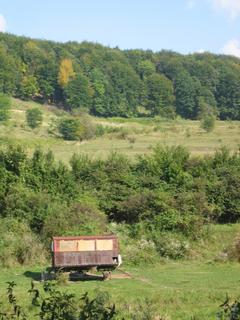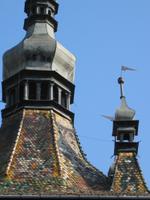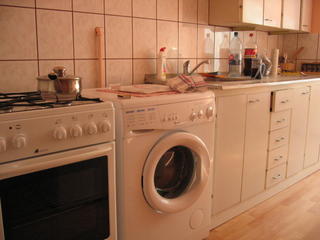Belgrade, Serbia
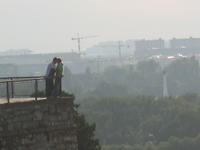 After visiting Romania, it seemed only logical to head to Serbia and see what a country just out of a war thinks about American tourists. While I did know that my little bit of Slovak would help me communicate, I wasn't sure how it would be received.
After visiting Romania, it seemed only logical to head to Serbia and see what a country just out of a war thinks about American tourists. While I did know that my little bit of Slovak would help me communicate, I wasn't sure how it would be received.At the border we were apologized to by the agent because his English wasn't very good, and he had to spell our names over his radio. He looked embarrassed. And at the hotel in Belgrade they apologized because there would only be space for two nights, after which the European basketball tournament would begin and all of the cities 400 hotel rooms had been booked far in advanced. At a pub I was told by the owner that I spoke very good Serbian, even though I was speaking Slovak. They seemed happy to have us there.
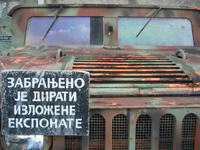
Belgrade as a city had a beautiful park and citadel overlooking the Danube River, a large pedestrian zone filled with your typical cafes and shops, and wonderful tree lined streets. Everyone in the city seemed to be in a constant hurry as they ran to catch the tram, or cross the street. The sidewalks were packed with people going about their daily routeine. But around them were the subtle reminders of not too long ago; a military museum with American uniforms, parachutes and plane parts, a Radio Shack computer in the glass case. Graphic pictures from the 88 days of NATO bombings. A proud boast how the citizens had saved their bridges during the bombings. A bad joke that made fun of the Croatians and the Bosnians. And the grafiti on the wall.
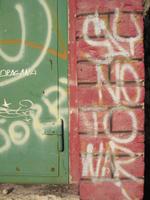
Yet, life goes on and, even though the trains always run late and the border triple checks your papers, it was hard to tell from the daily surroundings that this city was any different then the cities in the EU.
